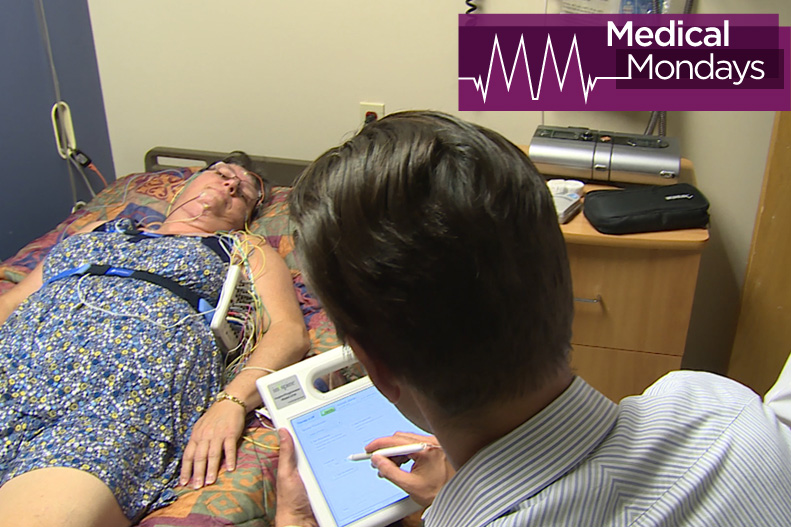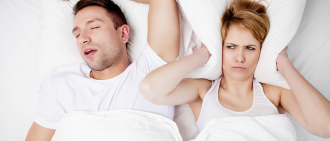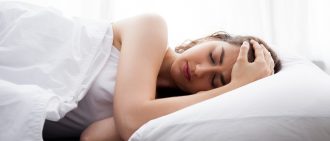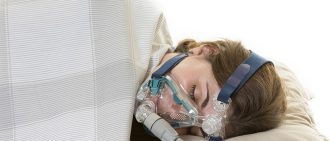People with untreated sleep apnea stop breathing during their sleep, sometimes hundreds of times a night. When this happens, the brain — and the rest of the body — may not get enough oxygen. And if sleep apnea continues to go untreated, it can cause life threatening complications, including high blood pressure and heart disease. At the UPMC Division of Sleep Surgery, our experts are some of the most experienced in the country at managing sleep apnea, either with medication, assist devices, or surgery.
This segment will cover:
- What is sleep apnea?
- How is it traditionally managed?
- What is the new groundbreaking surgical approach for treating sleep apnea?
-
The Serious Side Effects of Sleep Apnea
Doctors are viewing sleep disorders like OSA as a major public health concern. More than 22 million adults in the United States suffer from obstructive sleep apnea (OSA), with as many as 80 percent living without a diagnosis or treatment. With OSA, your upper airway becomes narrowed or blocked, which causes you to briefly but repeatedly stop breathing throughout the night – which can lead to serious side effects. Read more to discover how sleep apnea could affect you or someone you love.Learn More
-
Infographic: 10 Reasons You’re Getting Poor Sleep
Millions of Americans suffer from a lack of sleep or sleep deprivation. Even if you make the effort to get to bed early, there may be a number of reasons why you can’t get your proper amount of rest to help you feel functional the next morning. Anything from anxiety to artificial light could be disrupting your sleep patterns. Read more to discover ten common reasons you feel like a zombie in the morning.Learn More
-
Infographic: 6 Common Sleep Disorders
Are you constantly tired…even if you’ve had a full night’s rest? Do you have trouble falling asleep or staying asleep once you do? Have you been accused of “sawing logs?” Before you blame your mattress, read about these common sleep disorders. They could be keeping your body from getting the sleep it needs, which can lead to bigger problems down the road.Learn More
-
Sleep Zombie? 10 Signs You Might Have Sleep Apnea
If you’re getting to bed at a reasonable hour but still feeling tired and lethargic in the morning, you might be one of the 12 million-plus Americans feeling the effects of sleep apnea. This disorder can subtly interrupt the quality of your sleep, but most people don’t even realize they have it. Read more to discover the signs of sleep apnea and what you can do if you experience symptoms.Learn More
-
What to Expect During a Sleep Apnea Study
As many as one in 15 Americans has sleep apnea. If you think you might be among them, your doctor will recommend an overnight sleep study. This will allow your doctor to assess and find possible causes for your disorder. Read more to discover what to expect in a sleep apnea study so you can fully understand the disorder and how it is treated.Learn More
-
Better Sleep, Better Health
Did you know consistently failing to get enough sleep can affect memory, learning, productivity, and emotional stability, as well as your physical health? According to sleep specialists at the University of Pittsburgh School of Medicine, most people require seven to eight hours of sleep to function optimally and avoid health risks. Read more to discover the risks of getting too little sleep and what you can do to change it.Learn More
-
Find the Best Sleep Apnea Treatment to Feel Rested Again
If you have undergone a sleep study and have been diagnosed with sleep apnea, the next step is to determine which treatment option is best for you. Some lifestyle changes may be enough to treat mild sleep apnea, but other treatment options (ranging from machines to inspire therapy) will be more effective for more severe cases. Read more to discover your full range of sleep apnea treatment options.Learn More







